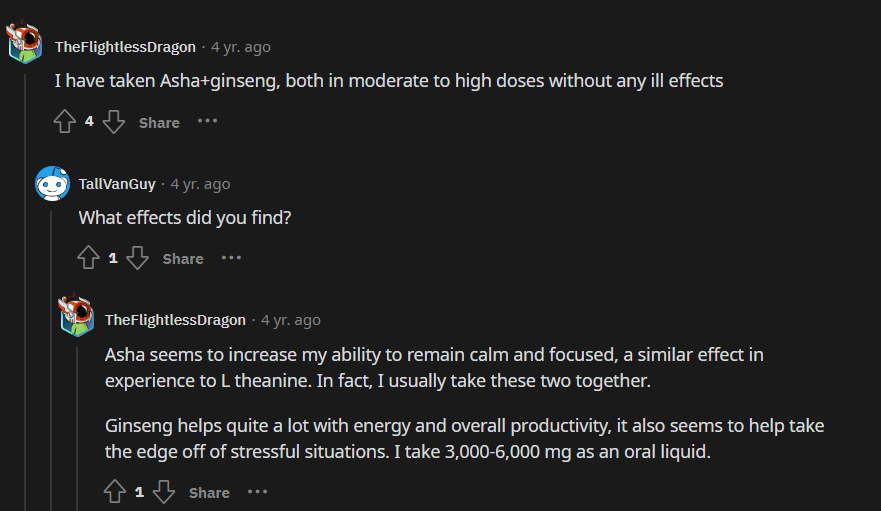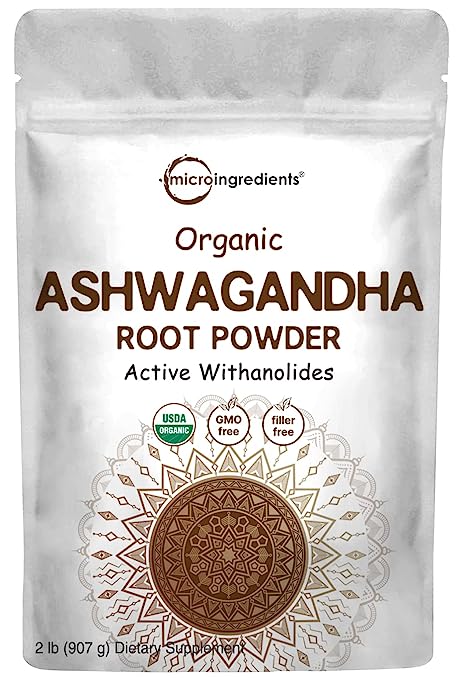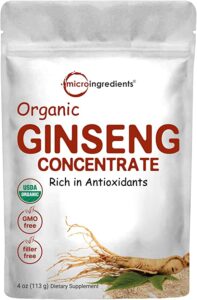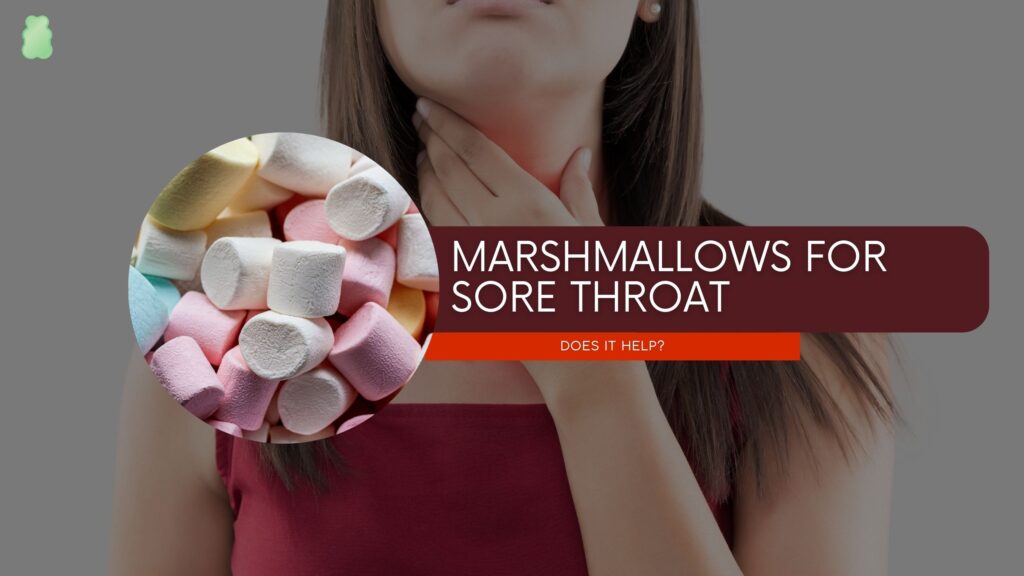Table of Contents
ToggleAshwagandha and Ginseng are two popular adaptogenic herbs known for their numerous health benefits and therapeutic properties. These plants have been used in traditional medicine for centuries and are gaining increasing attention in modern research and wellness practices. In this article, we will explore the origins, active components, health benefits, potential side effects, and popular uses of Ashwagandha and Ginseng.
You Might Like: https://realgoodgummies.com/how-to-cycle-ashwagandha
Also Read: https://realgoodgummies.com/goli-ashwagandha-gummies-in-depth-review
Origin and Cultivation
Ashwagandha: Origin, cultivation, and geographic distribution
Ashwagandha, scientifically known as Withania somnifera, is a small shrub native to India, North Africa, and the Middle East. It is widely cultivated in these regions and has been used in Ayurvedic medicine for thousands of years.
Ginseng: Origin, cultivation, and geographic distribution
Ginseng refers to the roots of plants belonging to the Panax genus, primarily Panax ginseng (Asian ginseng) and Panax quinquefolius (American ginseng). Ginseng is native to eastern Asia and North America and has been used in traditional Chinese medicine for over 2,000 years.
You Might Like: https://realgoodgummies.com/ashwagandha-withdrawal-things-you-must-know
Active Components and Chemical Composition
Ashwagandha: Active components and chemical composition
Ashwagandha contains various bioactive compounds, including alkaloids, steroidal lactones (withanolides), and saponins. These compounds are believed to be responsible for the herb’s therapeutic properties.
Ginseng: Active components and chemical composition
Ginseng contains a group of compounds called ginsenosides, which are believed to be responsible for its health benefits. Other active components include polysaccharides, peptides, and polyacetylenes.

Health Benefits
Ashwagandha: Health benefits and therapeutic properties
a. Stress and anxiety reduction: Ashwagandha has been shown to reduce cortisol levels and alleviate symptoms of stress and anxiety.
b. Immune system support: The herb is known to enhance immune function and promote overall health.
c. Improved cognitive function: Ashwagandha has been linked to improved memory, learning, and cognitive function.
d. Anti-inflammatory properties: The herb possesses anti-inflammatory properties that may help alleviate pain and inflammation.
e. Energy and stamina enhancement: Ashwagandha is known to boost energy levels and improve physical performance.
You Might Like: https://realgoodgummies.com/can-ashwagandha-cause-acne
Ginseng: Health benefits and therapeutic properties
a. Increased energy levels: Ginseng is known to enhance energy levels and reduce fatigue.
b. Cognitive performance improvement: The herb has been linked to improved cognitive function and mental clarity.
c. Anti-aging properties: Ginseng is believed to possess antioxidant properties that help combat the effects of aging.
d. Immune system modulation: The herb is known to support immune function and overall health.
e. Enhanced physical performance: Ginseng has been shown to improve physical performance and endurance.
You Might Like: https://realgoodgummies.com/best-ashwagandha-gummies
Potential Side Effects and Precautions
Ashwagandha: Potential side effects and precautions
a. Allergic reactions: Some individuals may experience allergic reactions to Ashwagandha.
b. Interaction with medications: Ashwagandha may interact with certain medications, including thyroid medications and sedatives.
c. Pregnancy and breastfeeding considerations: Pregnant and breastfeeding women should consult their healthcare provider before using Ashwagandha.

Ginseng: Potential side effects and precautions
a. Blood pressure and heart-related concerns: Ginseng may cause fluctuations in blood pressure and should be used with caution by individuals with heart-related issues.
b. Interaction with medications: Ginseng may interact with certain medications, including blood thinners and diabetes medications.
c. Insomnia and restlessness: Some individuals may experience insomnia or restlessness when taking Ginseng.
You Might Like: https://realgoodgummies.com/ashwagandha-for-kids-and-teenagers
Research and Scientific Studies
Ashwagandha: Overview of research studies and findings
Numerous studies have been conducted on the therapeutic properties of Ashwagandha, with many supporting its effectiveness in reducing stress, improving cognitive function, and enhancing overall health.
Ginseng: Overview of research studies and findings
Ginseng has also been extensively studied, with research supporting its potential benefits in improving energy levels, cognitive performance, and immune function.
You Might Like: https://realgoodgummies.com/ashwagandha-gummies-for-sex
Forms and Dosage
Ashwagandha: Available forms and recommended dosage
Ashwagandha is available in various forms, including capsules, powders, and extracts. The recommended dosage varies depending on the form and individual needs but generally ranges from 300-500 mg per day.
Ginseng: Available forms and recommended dosage
Ginseng is available in various forms, including capsules, powders, and extracts. The recommended dosage varies depending on the form and individual needs but generally ranges from 200-400 mg per day.
You Might Like: https://realgoodgummies.com/best-time-to-take-ashwagandha
Popular Uses and Market Availability
Ashwagandha: Popular uses in traditional and modern medicine, market availability
Ashwagandha is widely used in traditional medicine and is increasingly popular in modern wellness practices. It is readily available in health food stores and online retailers.
Ginseng: Popular uses in traditional and modern medicine, market availability
Ginseng is a staple in traditional Chinese medicine and is also popular in modern health practices. It is widely available in health food stores and online retailers.
Read the Discussion About Ashwagandha and Ginseng:

https://www.reddit.com/r/StackAdvice/comments/acappf/ashwagandha_panax_ginseng_gingko_biloba_safe/
Final Thoughts
In summary, both Ashwagandha and Ginseng possess unique health benefits and therapeutic properties, with some overlapping effects. Choosing the right adaptogen for your needs depends on your individual health goals and preferences. Consult with a healthcare professional before incorporating either herb into your wellness routine to ensure safe and effective use.
FAQ
1. What are the main differences between Ashwagandha and Ginseng?
Ashwagandha and Ginseng are both adaptogenic herbs, but they have different botanical origins, active compounds, and traditional uses. Ashwagandha is derived from the Withania somnifera plant and contains withanolides, while Ginseng comes from the Panax genus and contains ginsenosides. They both offer various health benefits, but Ashwagandha is more commonly used for stress relief and anxiety, while Ginseng is known for boosting energy and stamina.
2. Are there any side effects associated with Ashwagandha and Ginseng consumption?
Both Ashwagandha and Ginseng are generally considered safe, but they may cause mild side effects in some individuals, such as headaches, dizziness, and gastrointestinal issues. Additionally, both herbs may interact with certain medications, and overuse of Ginseng may lead to hormonal imbalances. It is essential to consult with a healthcare professional before starting any new supplement regimen.
3. How can I incorporate Ashwagandha and Ginseng into my daily routine?
Ashwagandha and Ginseng are available in various forms, such as capsules, tablets, powders, and liquid extracts. You can take them according to the recommended dosages, typically once or twice daily. It is essential to follow the manufacturer’s instructions and consult with a healthcare professional for personalized advice.
4. Can Ashwagandha and Ginseng be taken together?
While both herbs offer distinct health benefits, they can potentially be taken together. However, it is crucial to consult with a healthcare professional before combining these supplements, as they may interact with each other or with medications you may be taking.
5. How long does it take for Ashwagandha and Ginseng to show results?
The time it takes for Ashwagandha and Ginseng to show results may vary depending on the individual and the specific health benefits being sought. Some users may experience improvements in stress levels, energy, and cognitive function within a few weeks, while others may take several months to notice significant changes.
Dr. Susan Francis is a passionate medical professional with over 4.5 years of experience in the field. She received her medical degree from the University of Michigan and completed her residency at the Mayo Clinic.
In addition to her clinical work, Dr. Francis has a strong interest in medical writing and editing. She has edited numerous articles for medical journals and is a regular contributor to several healthcare publications.
Dr. Francis is committed to promoting accurate and accessible medical information to the public. In her free time, she enjoys staying up to date on the latest medical research and volunteering at local healthcare clinics.
- October 3, 2023
- October 3, 2023













